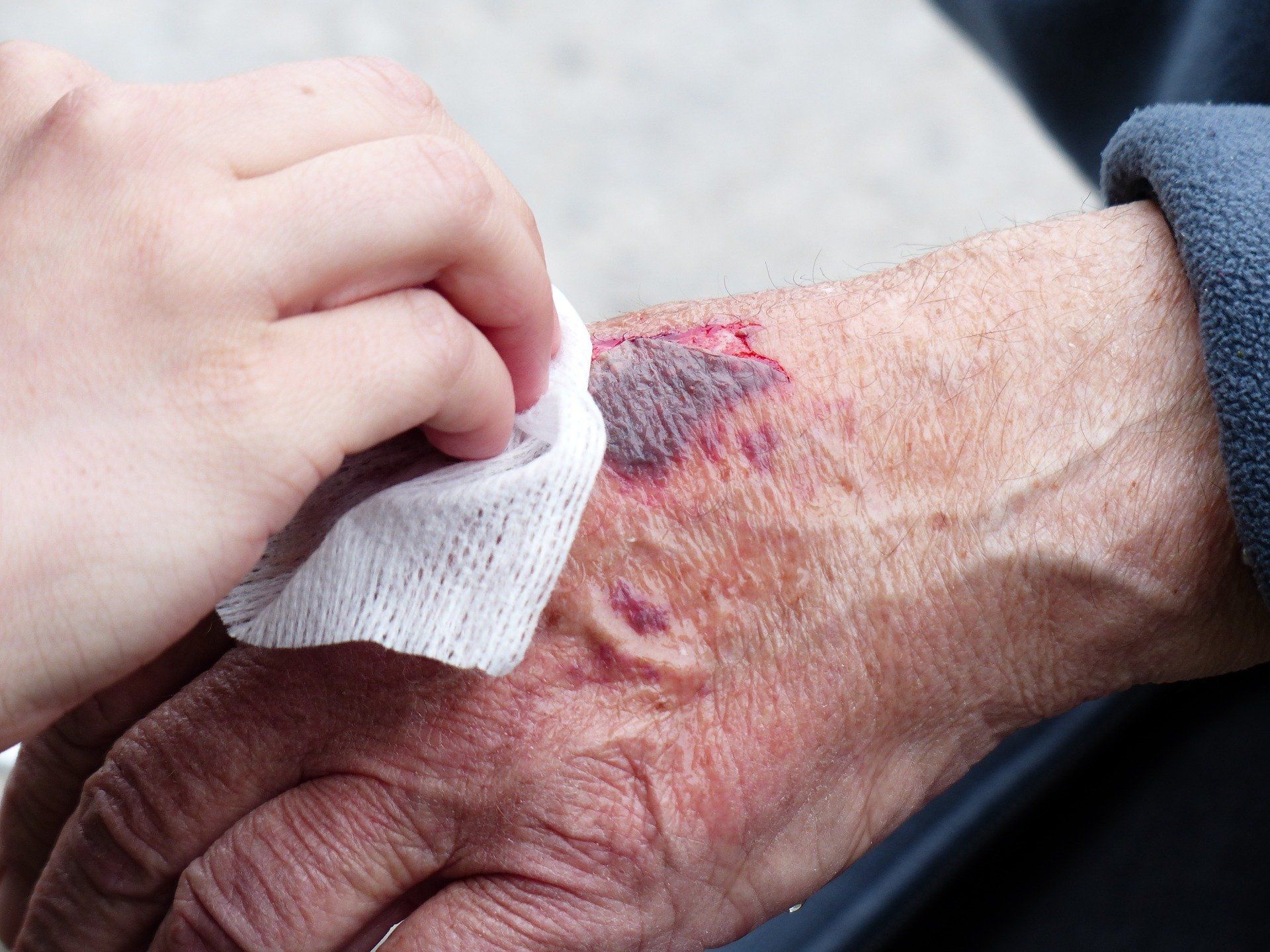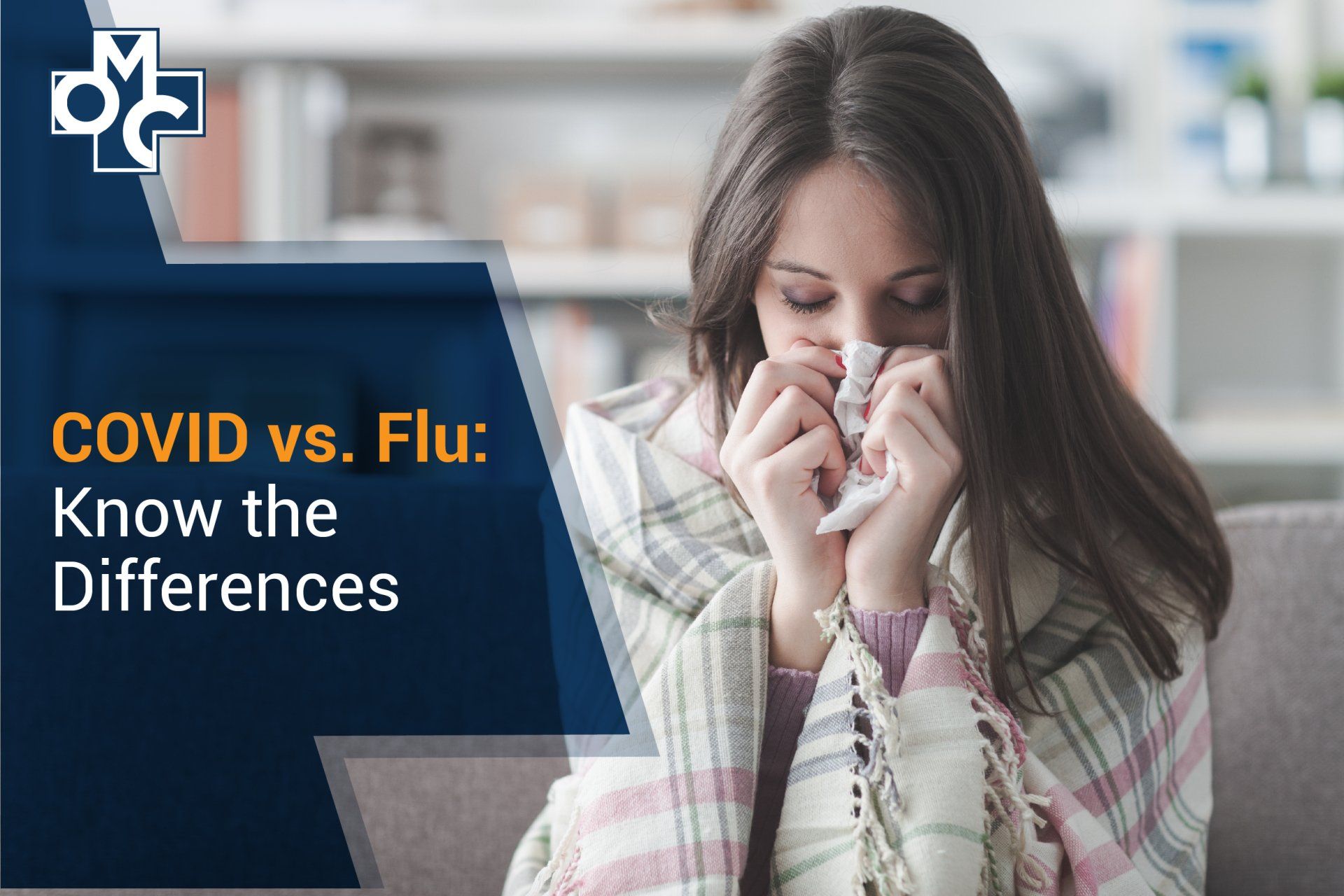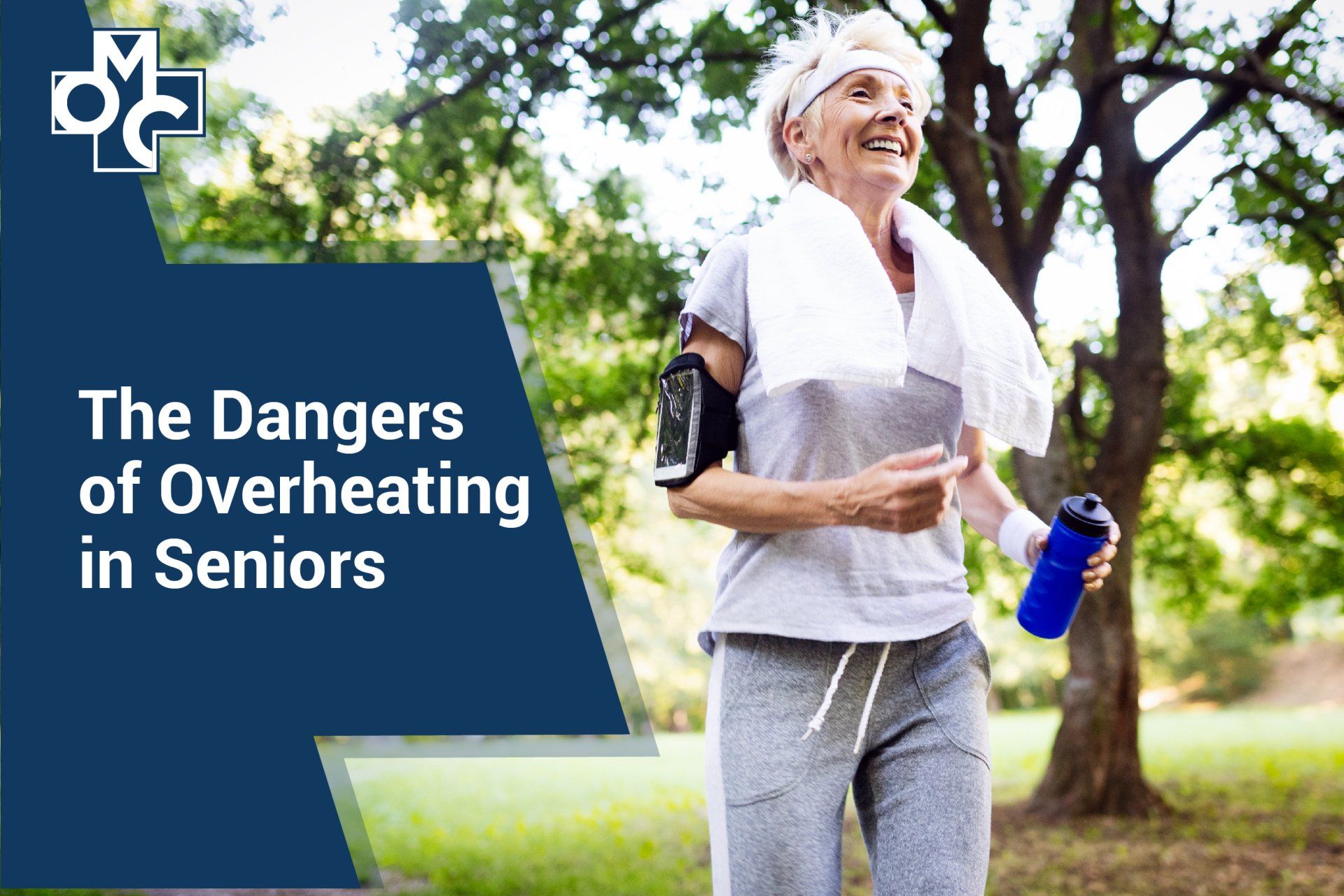Best Tips for Wound Care for Seniors

As we get older, our skin becomes thinner and more delicate. This means that even a minor wound such as a scratch or tiny cut will take far longer to heal on the skin of a senior than the same injury would take to heal on a child.
After all, a five-year-old with a grazed knee can often be treated with some antiseptic cream and a kiss to make it better and the skin will be fully repaired within a couple of days. However, the same injury on a senior can have long-lasting and serious repercussions.
This all comes down to age. When we are young, our skin is constantly regenerating and growing thanks to our growth hormones, but as we age this process becomes increasingly static. Proper wound care is important for all ages. But with seniors, even a minor wound can often lead to long-term complications. This means that taking the right care of a wound is crucial to long-term health and recovery. If you fail to act correctly or you don’t notice a minor injury, it is likely to develop into a real medical problem. As we age, our immune systems become weaker so we become easier prey to infection and disease.
The first step to effective wound care is to identify the type of wound. These fall into two main categories; acute wounds and chronic wounds.
Acute Wounds
Acute wounds are the wound injuries that result from accidents such as falling over, knocks and scrapes, grazes, cuts from sharp objects, skin tears, or any other accidental damage to the skin.
If any injury punctures the skin causing it to bleed or graze, it will be extremely painful and can lead to infection if it is not treated correctly. Seniors do not have a very effective immune system so infection can be a major issue.
To treat an acute wound, you should act fast to prevent infection. For serious wounds, do not hesitate to call the emergency services or your doctor.
How to treat an acute wound
If the wound is bleeding profusely, apply pressure to the area to reduce the blood flow.
Use plenty of clean water plus soap or a saline solution to wash the affected area
Wash away any foreign bodies from the wound such as grit or broken glass.
Use antiseptic cream to further clean the area. If you don’t have any of this to hand, don’t worry because cleaning the area and protecting the skin from the air is more important.
Dress the wound by covering it with a bandage to protect it from the air and to minimize the risk of infection.
Seek medical advice, even if the wound seems small and insignificant. If it later swells or discolors you may need antibiotics to clear away any infection.
Fast action and prompt wound management will help the injury to heal. However, in some cases, you may do everything right and even a minor injury may develop into a more serious problem.
Chronic wounds
Chronic wounds are wounds that fail to heal properly. In many cases, they develop as a result of a minor incident that does not seem very serious at the time but later develops into a serious and long-term medical issue.
Chronic wounds can also be caused by diabetic ulcers which inflame and become infected. In residential care facilities, chronic wounds are often caused by pressure sores (bed sores) which develop if the resident is left in the same position for too long. The buttocks and back are the most likely areas for this type of wound.
It is extremely important for all care staff to keep an eye out for these types of injuries. They can develop very fast and can be extremely difficult to treat.
Potential causes of chronic wounds include:
• Diabetic ulcers
• Infection
• Severe inflammation
• Radiation poisoning such as following radiotherapy treatment
• Surgery where stitches or incisions fail to heal properly
• Pressure sores which have been allowed to develop
• MRSA
How to treat chronic wounds
A senior suffering from a chronic wound infection will usually require hospitalization and/ or treatment with strong antibiotics. And the sooner that this is implemented the better the outcome will be. So if you notice that a wound has failed to heal or an area on the skin has become inflamed or swollen, you should alert your doctor or nurse practitioner as soon as possible, because this is a sign of infection.
The superbug MRSA (methicillin-resistant Staphylococcus aureus) is a form of infection that is resistant to most antibiotics. Many of us have this bacteria living harmlessly on our bodies but it can also infect open wounds in the body.
MRSA is contagious and for seniors with a weakened immune system, it can lead to serious medical problems, eating away at the flesh around the wound site. It can be treated with certain antibiotics but requires careful handling to prevent the spread of infection.
Sepsis is also a serious issue that can develop from small acute injuries. Sometimes called blood poisoning, this is a life-threatening reaction to infection and can cause a range of symptoms including confusion and breathing difficulties. It is extremely hard to spot in dementia sufferers but is a fatal condition that everyone should be fully aware of.
If you are a senior or involved in senior care, ensuring that any small acute wounds are properly treated fast and effectively is important. This means that it is important to always get trained medical attention for an acute wound or any wound which you believe may have become infected.
Caregivers are the front line for wound control
Caregivers are the front line for wound control. So it is important to know how to carry out basic first aid in order to protect seniors and also to understand that a minor injury suffered by a senior does not have to look life-threatening in order to actually be life-threatening.
In most cases, prompt action following a small acute wound will be enough to cure the problem. The healing process will take longer in a senior than in a younger person but over time, the skin can recover effectively.











